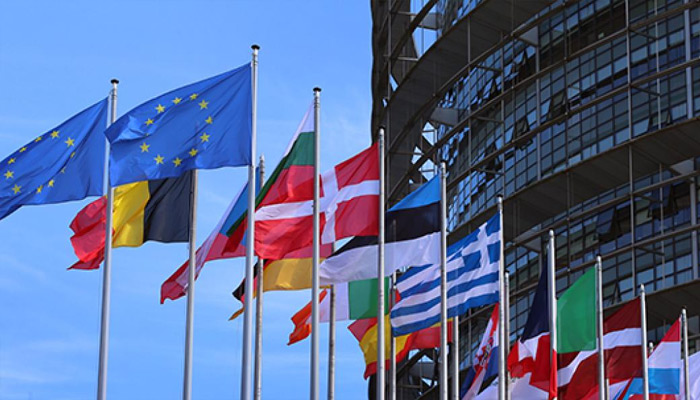One of the world’s largest democratic exercises is currently underway as the European Union, a bloc of 450 million citizens, heads to the polls from Thursday to Sunday to elect 720 members of the European Parliament.
Voters in the 27 nations of the EU will play a crucial role in shaping the priorities and political direction of the bloc for the next five years. The election is expected to see a significant rightward shift in power, with far-right parties poised to make substantial gains.
The 720-seat European Parliament co-decides with the EU’s 27 national governments on laws governing the bloc’s single market, its long-term budget, fiscal rules, and climate change laws. The new parliament will also decide on the EU’s next seven-year budget as countries like Ukraine press for membership.
Here’s what you need to know about the European Union elections:
The European Parliament elections will determine how the EU confronts major external challenges such as a more aggressive Russia, increased industrial competition from China and the United States, climate change, and immigration.
Election campaigns in many countries, including Germany, have focused on security and defence issues amid Russia’s war against Ukraine. Economic and social policy remains the top issue for voters in most countries, with migration policy playing a lesser role.
The Netherlands, which elects 31 of the 720 members of the European Parliament, was the first country to vote. An exit poll indicated a centre-left alliance led by former European Commissioner Frans Timmermans edging out far-right leader Geert Wilders, with eight seats to PVV’s seven.
The Dutch vote reflects a broader EU challenge: the growing popularity of nationalist and populist parties that aim to weaken the 27-nation bloc from within. Far-right parties are expected to increase their vote share to 21-25% across the EU, though not enough for a decisive majority.
French President Emmanuel Macron warned of the EU being blocked by a significant far-right presence in the European Parliament. France votes on June 9, with opinion polls suggesting a strong lead for the far-right National Rally (RN) over Macron’s centrist coalition. Macron urged voters to support pro-European candidates to avoid the regret seen after the UK’s Brexit vote.

